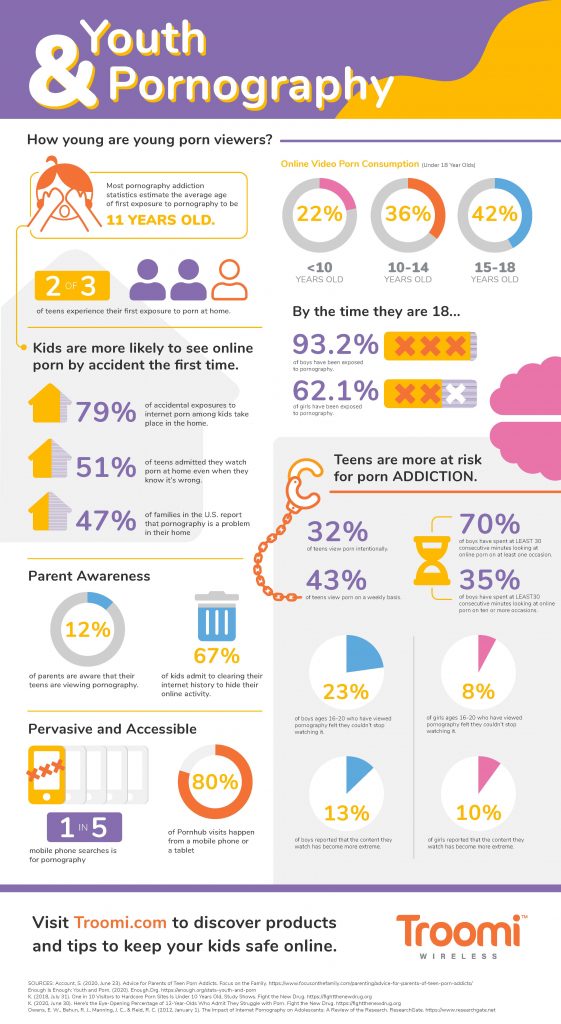Pornography is prevalent in this day and age. What used to only be accessible in dingy magazine shops and dark corners of neighborhood movie stores is now accessible with the click of a button—day or night. Anyone—including your child— is susceptible to exposure, but there are steps you can take to protect your family.
Let’s take a look at what you can do to help your child avoid or overcome the fight against pornography.
What Research Tells us About Porn
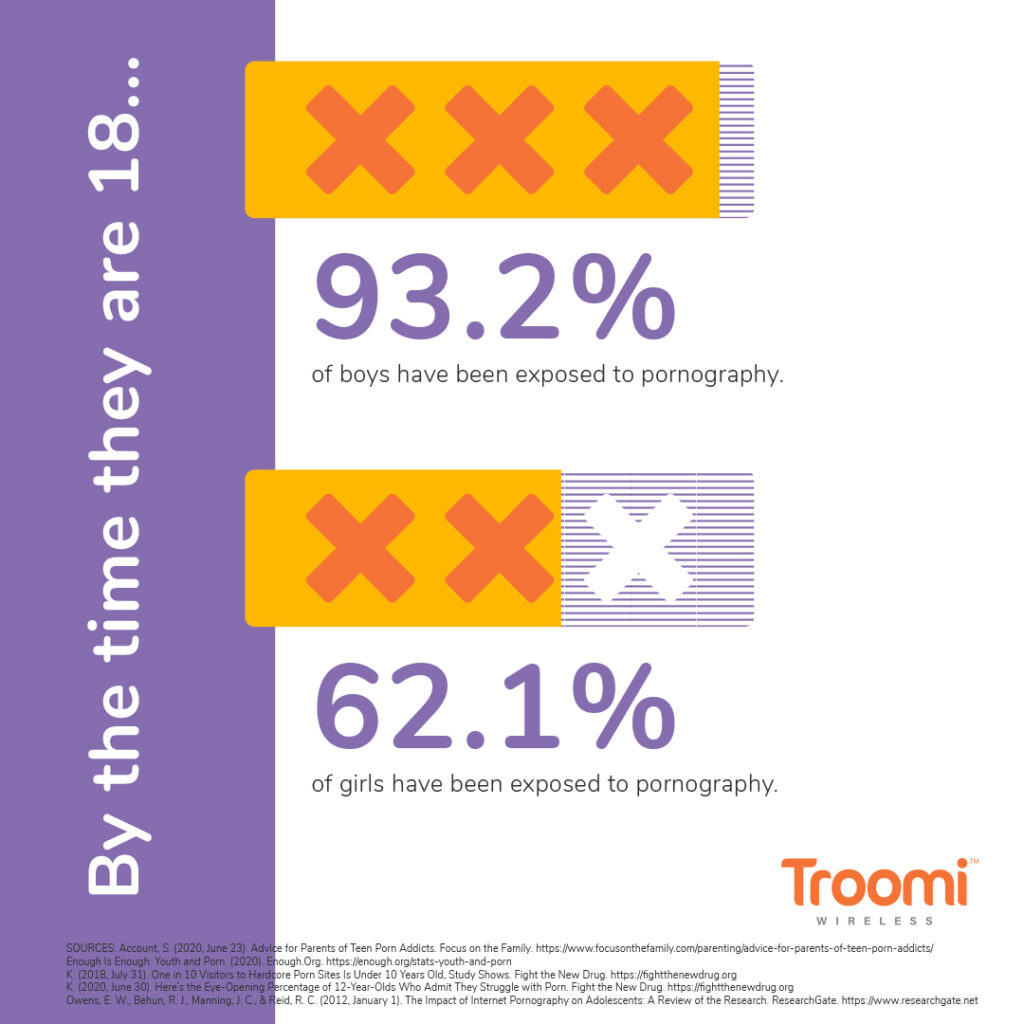
There’s an overwhelming amount of research and data about pornography exposure available, so let’s focus on some key points:
- First exposure: Most pornography addiction statistics estimate the average age of first exposure to pornography to be 11 years old.
- Early exposure: Sources estimate 93% of young men and 62% of young women have seen porn before the age of 18.
- Home access: In a study of 20,000 teens, 51% admitted they watch porn at home even though they know it’s wrong.
These statistics are disconcerting, but they can also raise your pornography awareness and realize that this problem isn’t uncommon. Your child isn’t the only one who is struggling, and you aren’t the only parent who is fighting it.
How to Know if Your Child is Struggling with a Porn Addiction
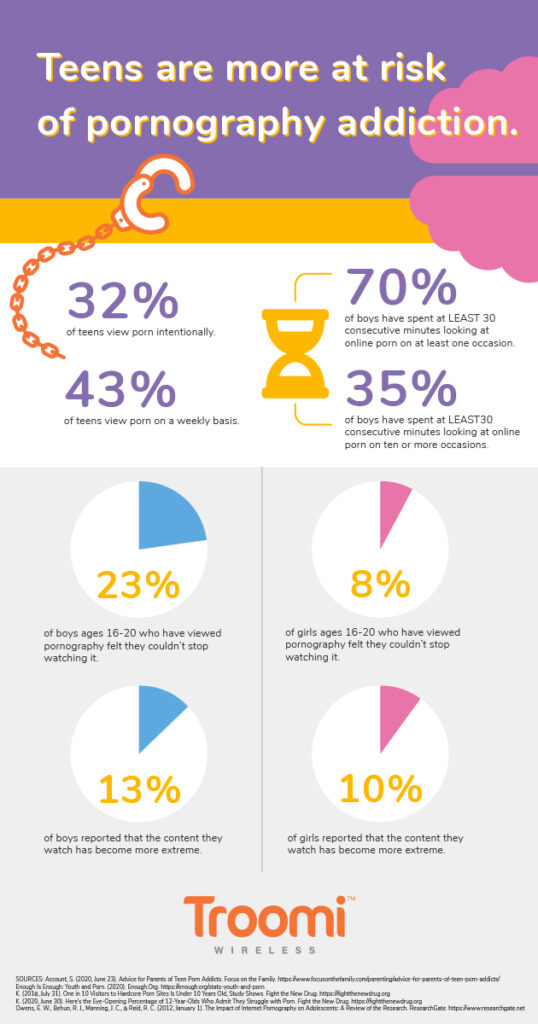
Unfortunately, your child won’t likely tell you about their challenges. The shame and guilt surrounding a pornography problem is enough to prevent them from seeking any help. If your child won’t tell you about their porn issues out of fear, watch for signs like the following:
- They delete their browsing history.
- They have sudden behavioral changes.
- They are secretive about their online activity.
- They seek privacy when using their device.
- They withdraw or show symptoms of depression.
How To Talk To Your Kids About Porn
No parent wants to come to terms with the possibility that their child might suffer from a pornography problem, but as difficult as it is, addressing the issue now will help prevent your child from becoming addicted.
How can we approach our children in a loving way to talk about issues with pornography? Because initially approaching the topic with your child can be daunting, Fight the New Drug has developed a blueprint that can guide you through the process.
A few key suggestions when planning your conversation:
- Start with love. Make sure your child knows how much you love them and how you always will regardless of what they do.
- Listen. Ask your child to talk about their feelings and experiences, then listen. Listening and responding with love will help your child feel valued and understood.
- Reassure them. Remember that any victim of trauma might be experiencing feelings of hopelessness and self-loathing. Reassure them that they can recover and that their issues do not define them as a person.
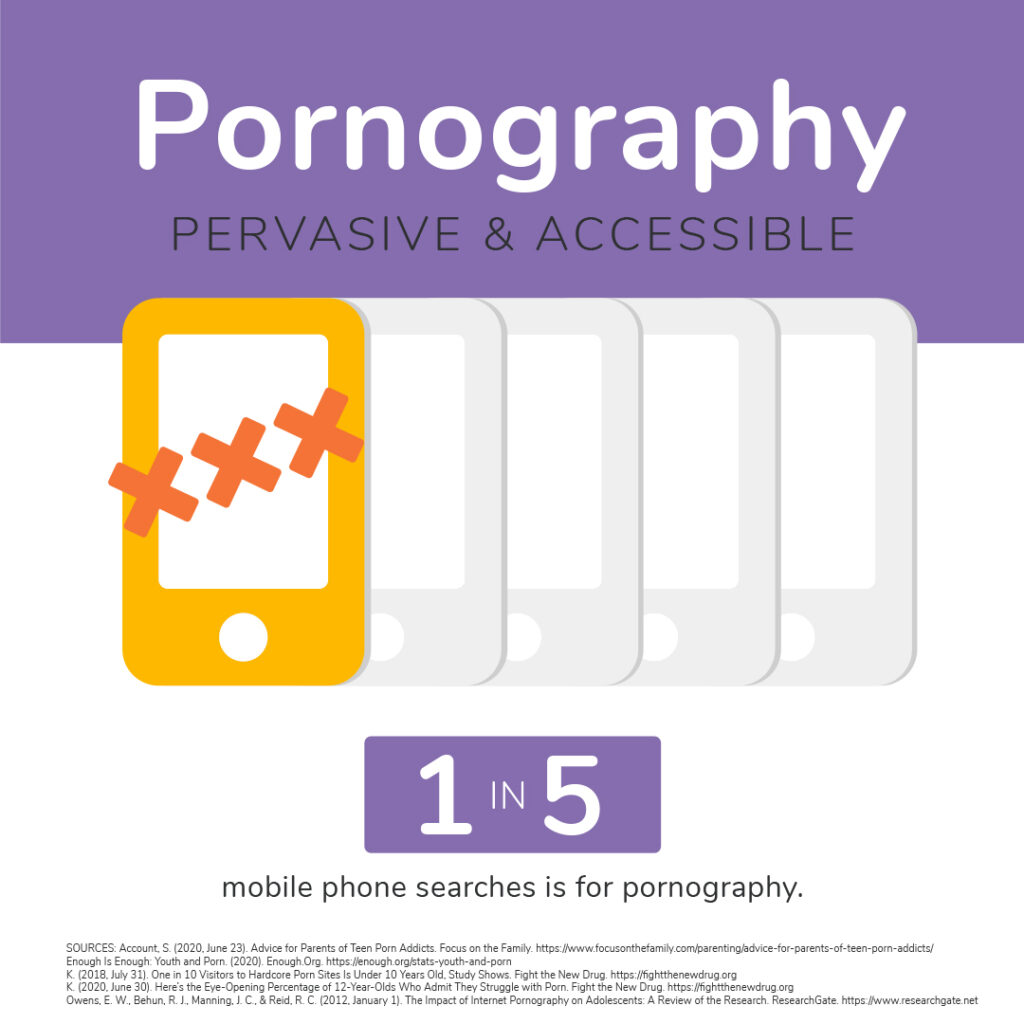
Learning that your child has a pornography problem is an emotional experience to say the least. You may feel angry, hurt, disappointed, and confused, but you must not allow these feelings to affect how you handle the situation. Remember these points as you make the decision to react with love and support:
- Having a pornography problem does not make your child (or anyone) a bad person.
- You are not a bad parent if your child has a pornography problem.
- Now more than ever before, your child needs love and support—not punishment and shame.
- Be understanding, loving, and kind. Create a safe environment for your child to talk openly.
- At all costs, avoid condemning, shaming, or threatening your child in any way—this will only damage your relationship.
How To Protect Kids From Porn
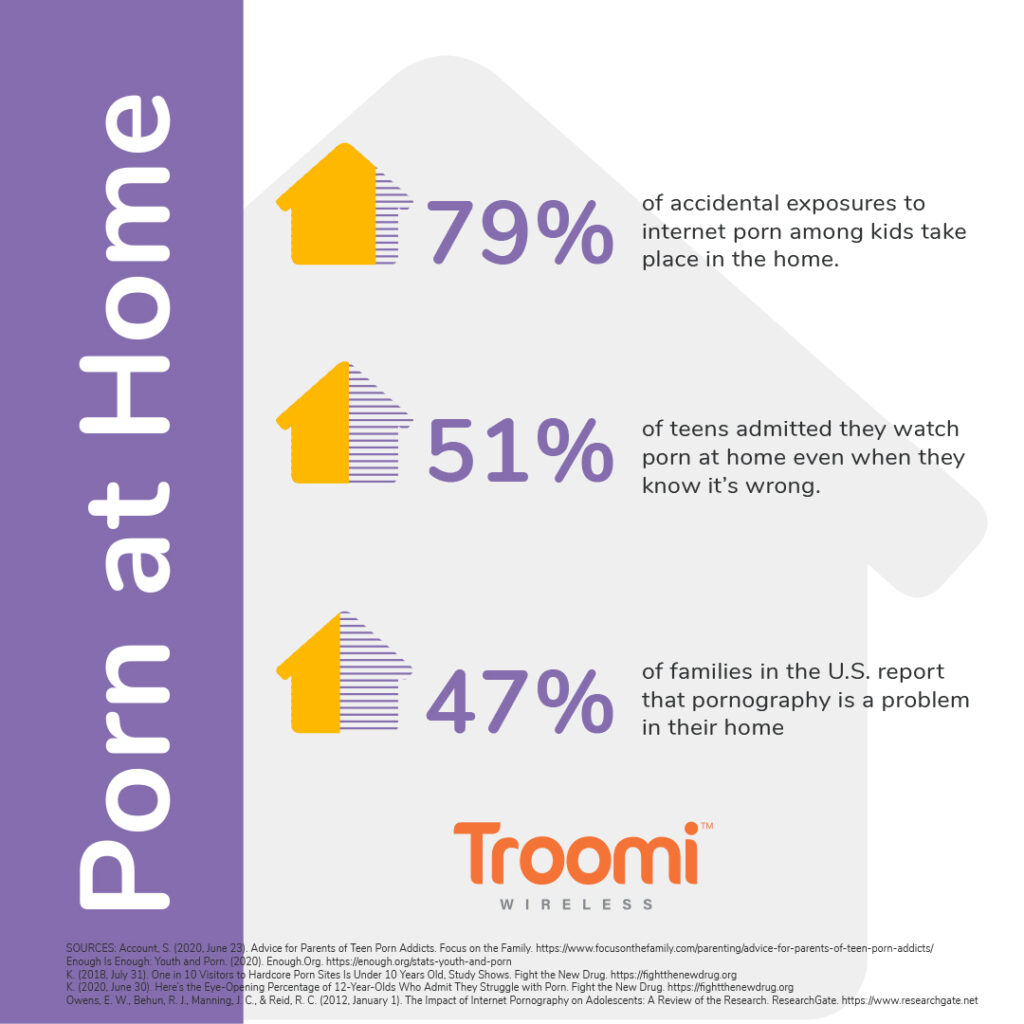
When combating pornography, you will need to implement some strategies in your home to support your child in overcoming their problem.
- Make a plan. Sit down and create a personalized plan with your child on how to stop pornography consumption. Encourage them to come to you as soon as they make a mistake.
- Monitor phone use. If your child primarily accesses pornography through their smartphone, consider getting them a phone with texting but no Internet. If sexting is an issue for them, let them know that you will occasionally be checking their phone. If they are prone to deleting their texts, remove the ability to delete text messages and phone call history using parental controls. You should also look into apps for parents to monitor kids’ phones to help keep track of your child’s online activity.
- Consider porn addiction therapy. Don’t be ashamed to seek professional guidance. Pornography addictions cause a dysfunction in the reward center of the brain that can change how the brain processes certain chemicals. Pornography addiction therapist Dr. Adam Moore provides some questions you can ask yourself to determine whether or not you should seek porn addiction therapy.
Finding out about your child’s pornography problem is scary, but you can learn how to beat pornography together. Remember that Troomi wants to support with child-safe phones that can help prevent kids from viewing or being exposed to pornography. Don’t be afraid to give them a try!
